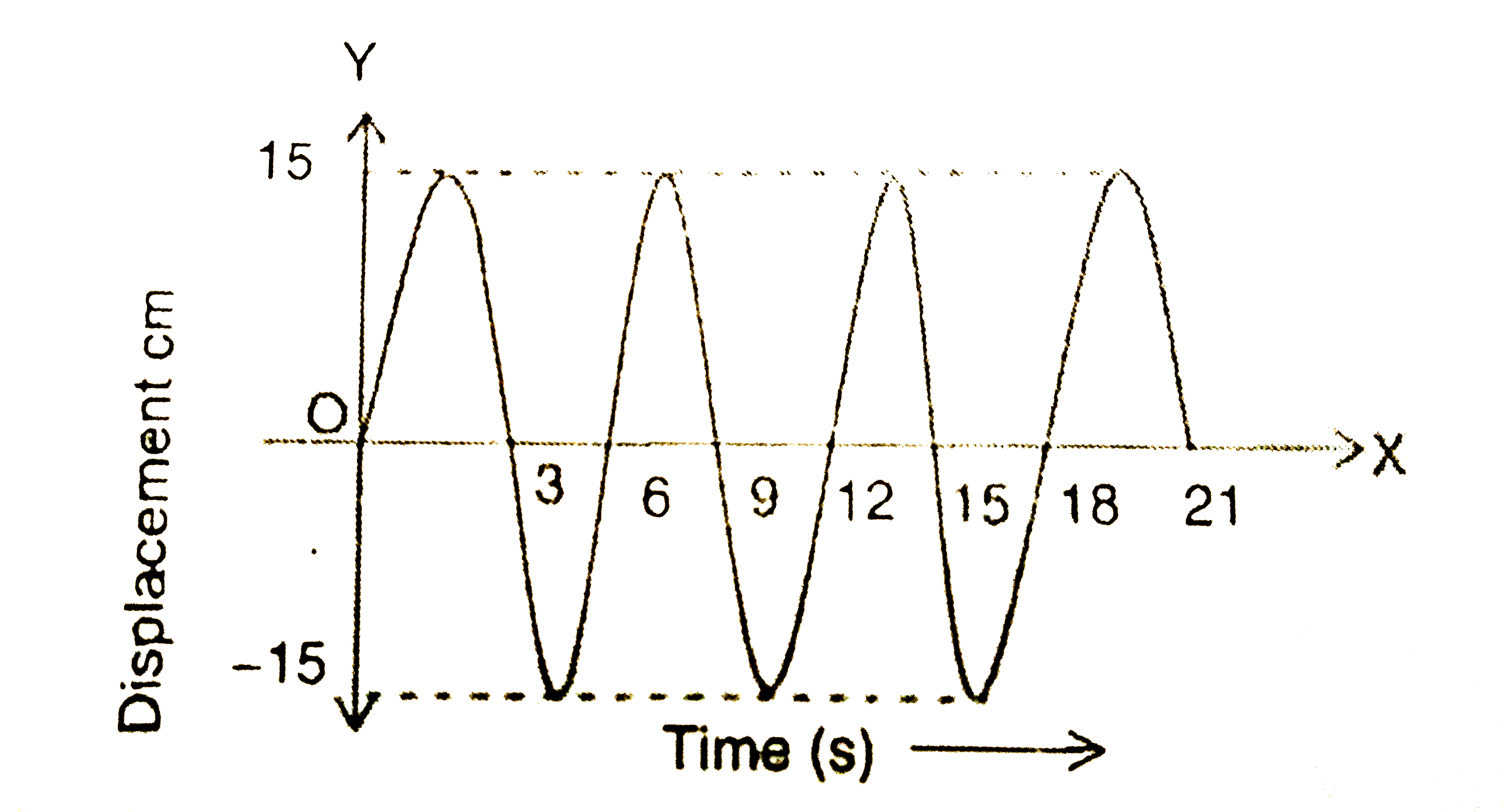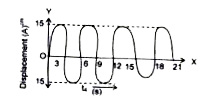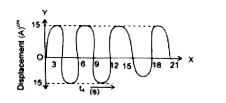At any instant of time, the total energy (E) of a simple pendulum is equal to the sum of its kinetic energy and potential energy where, m is the mass, v is the velocity, x is the displacement of the bob and k is a constant for the pendulum, the amplitude of oscillation of the pendulum is 10 cm and its total energy is 4 m J. Find k.
Data insufficient
The correct Answer is:B
To solve the problem, we will follow these steps:
Step 1: Understand the total energy of the pendulum
The total energy (E) of a simple pendulum is given by the sum of its kinetic energy (KE) and potential energy (PE):
E=KE+PE
Where:
- Kinetic Energy KE=12mv2
- Potential Energy PE=12kx2
Step 2: Identify the values given in the problem
From the problem, we know:
- The amplitude of oscillation A=10cm=0.1m
- The total energy E=4mJ=4×10−3J
Step 3: Determine the potential energy at maximum displacement
At maximum displacement (amplitude), the velocity v=0 and all the energy is potential energy. Therefore, we can write:
E=PE
E=12kA2
Step 4: Substitute the known values into the equation
Substituting the known values into the potential energy equation:
4×10−3=12k(0.1)2
Step 5: Simplify the equation
Calculating (0.1)2:
(0.1)2=0.01
So the equation becomes:
4×10−3=12k(0.01)
Step 6: Solve for k
Multiply both sides by 2 to eliminate the fraction:
8×10−3=k(0.01)
Now, divide both sides by 0.01:
k=8×10−30.01
k=0.8N/m
Conclusion
The spring constant k is 0.8N/m.
---
The total energy (E) of a simple pendulum is given by the sum of its kinetic energy (KE) and potential energy (PE):
E=KE+PE
Where:
- Kinetic Energy KE=12mv2
- Potential Energy PE=12kx2
From the problem, we know:
- The amplitude of oscillation A=10cm=0.1m
- The total energy E=4mJ=4×10−3J
At maximum displacement (amplitude), the velocity v=0 and all the energy is potential energy. Therefore, we can write:
E=PE
E=12kA2
Substituting the known values into the potential energy equation:
4×10−3=12k(0.1)2
Calculating (0.1)2:
(0.1)2=0.01
So the equation becomes:
4×10−3=12k(0.01)
Multiply both sides by 2 to eliminate the fraction:
8×10−3=k(0.01)
Now, divide both sides by 0.01:
k=8×10−30.01
k=0.8N/m
The spring constant k is 0.8N/m.
Similar Questions
Knowledge Check
- Question 1 - Select One
What is the maximum velocity of the bob of a second's pendulum, if the amplitude of oscillation of the pendulum is 0.1 m ?
A0.2 m/sB0.5 m/sC0.3142 m/sD0.6284 m/s - Question 2 - Select One
If the length of a simple pendulum is halved, then its energy becomes
AdoubleBhalfC4 times of the initialD3 times of the initial - Question 3 - Select One
The kinetic energy of SHM is 1/n time its potential energy. If the amplitude of the SHM be A, then what is the displacement of the particle ?
AnAB√n+1nC√nn+1DAn
In the case of a simple pendulum, a graph is drawn between the displacement and time taken for its oscillations as shown in the figure . Then
The amplitude of oscillation of the pendulum of the bob is ____ cm . View Solution
View SolutionIn the case of a simple pendulum, a graph is drawn between the displacement and time taken for its oscillations as shown in the figure. Then

The amplitude of oscillation of the pendulum bob is _____ cm.View SolutionFor a simple pendulum, a graph is plotted its kinetic energy (KE) and potential energy (PE) against its displacement d. Which one of the following represents these correctly?
View SolutionWhen the displacement of a particle executing simple harmonic motion is half its amplitude, the ratio of its kinetic energy to potential energy is
View SolutionIn the case of a simple pendulum, a graph is drawn between the displacement and time taken for its oscillations as shown in the figure. Then

Time period of the pendulum bob is ______ s.View Solution
